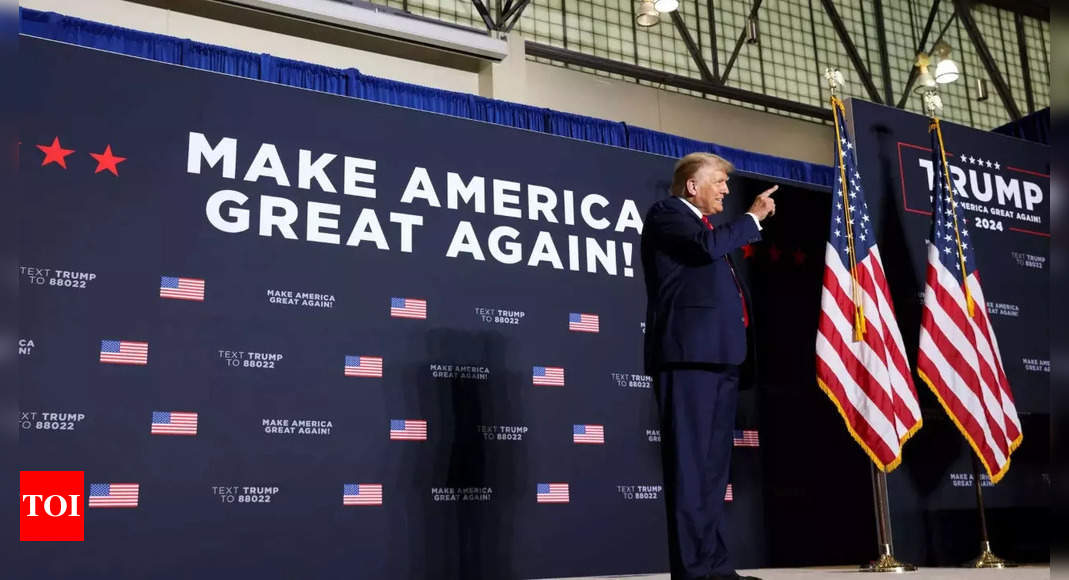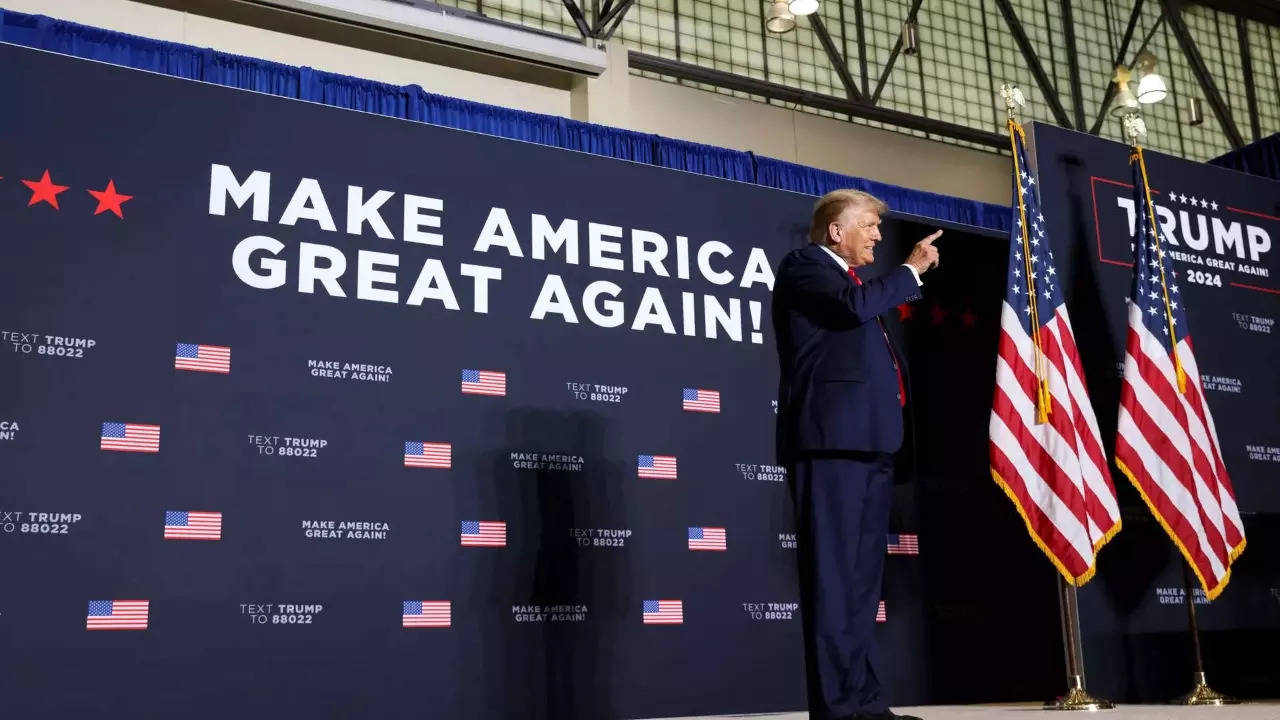[ad_1]
NEW DELHI: Former President Donald Trump made his appearance at a New York court on Monday for the start of jury selection for the start of jury selection in his hush money trial—a moment of significant historical import for the United States.
This marks the first instance of a former president facing a criminal trial, setting the stage for a legal battle among the four indictments leveled against Trump.Given his current status as the presumptive Republican nominee, the trial presents a surreal scenario of a presidential candidate navigating between legal proceedings and campaigning, as he remarked, “campaigning during the night.”
Before the jury selection process unfolds, there may be preliminary legal matters to address. Once underway, numerous individuals will be called into the courtroom as part of the effort to select 12 jurors and six alternates.
Judge Juan M. Merchan, in his filing dated April 8th, emphasized the paramount importance of ensuring prospective jurors can set aside personal biases and render decisions based solely on evidence and the law.
For Trump, this trial represents a historic moment, a courtroom reckoning following a presidency marked by norm-breaking events and investigations. Facing charges ranging from hoarding classified documents to plotting to overturn an election, Trump’s legal battles take center stage, though the political ramifications remain uncertain. Despite the gravity of the charges, a conviction would not bar him from seeking the presidency, and the allegations in this case are viewed as less severe compared to others he faces.
Regardless of the trial’s outcome, Trump seeks to leverage the proceedings to portray himself as a victim of politically motivated prosecutions aimed at derailing his candidacy. His persistent attacks on judges and prosecutors underscore his narrative of persecution.
The trial, with its potential implications, unfolds against the backdrop of legal maneuvers. An emergency request to delay the trial was rejected by an appeals judge, while Manhattan prosecutors contend that fair and impartial jurors can be found despite the publicity surrounding the case.
The process of jury selection will commence with individuals filing into Merchan’s courtroom, identified only by numbers to maintain confidentiality. Prospective jurors will be screened for bias and their ability to serve impartially, with specific questions tailored to the unique circumstances of the case.
The attorneys will scrutinize responses to eliminate potential jurors for cause and utilize peremptory challenges to exclude others without providing a reason. However, the judge cautioned against exhausting peremptory challenges based solely on political affiliation, highlighting the delicate balance in jury selection.
(With inputs from agency)
This marks the first instance of a former president facing a criminal trial, setting the stage for a legal battle among the four indictments leveled against Trump.Given his current status as the presumptive Republican nominee, the trial presents a surreal scenario of a presidential candidate navigating between legal proceedings and campaigning, as he remarked, “campaigning during the night.”
Before the jury selection process unfolds, there may be preliminary legal matters to address. Once underway, numerous individuals will be called into the courtroom as part of the effort to select 12 jurors and six alternates.
Judge Juan M. Merchan, in his filing dated April 8th, emphasized the paramount importance of ensuring prospective jurors can set aside personal biases and render decisions based solely on evidence and the law.
For Trump, this trial represents a historic moment, a courtroom reckoning following a presidency marked by norm-breaking events and investigations. Facing charges ranging from hoarding classified documents to plotting to overturn an election, Trump’s legal battles take center stage, though the political ramifications remain uncertain. Despite the gravity of the charges, a conviction would not bar him from seeking the presidency, and the allegations in this case are viewed as less severe compared to others he faces.
Regardless of the trial’s outcome, Trump seeks to leverage the proceedings to portray himself as a victim of politically motivated prosecutions aimed at derailing his candidacy. His persistent attacks on judges and prosecutors underscore his narrative of persecution.
The trial, with its potential implications, unfolds against the backdrop of legal maneuvers. An emergency request to delay the trial was rejected by an appeals judge, while Manhattan prosecutors contend that fair and impartial jurors can be found despite the publicity surrounding the case.
The process of jury selection will commence with individuals filing into Merchan’s courtroom, identified only by numbers to maintain confidentiality. Prospective jurors will be screened for bias and their ability to serve impartially, with specific questions tailored to the unique circumstances of the case.
The attorneys will scrutinize responses to eliminate potential jurors for cause and utilize peremptory challenges to exclude others without providing a reason. However, the judge cautioned against exhausting peremptory challenges based solely on political affiliation, highlighting the delicate balance in jury selection.
(With inputs from agency)
[ad_2]
Source link


